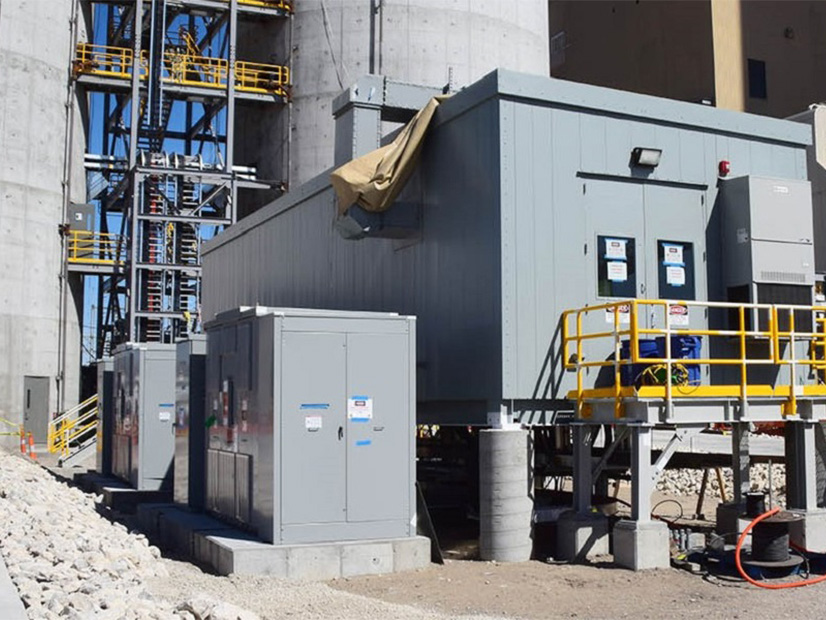A federal judge has scheduled a hearing next month to settle a dispute between Ameren and the Department of Justice over the closure of a St. Louis-area coal plant.
In a Monday ruling out of the U.S. District Court for the Eastern District of Missouri, Chief Judge Rodney Sippel ordered a Feb. 4 hearing over when Ameren should shutter its 1.2-GW Rush Island Energy Center. The DOJ has accused Ameren of dragging its feet on pollution mitigation (4:11 CV 77 RWS).
The hearing date gives MISO time to determine whether the plant is needed for system reliability beyond its planned 2024 retirement. The grid operator said it will decide no later than Jan. 28 whether to designate Rush Island as a system support resource that would possibly prevent it from shutting down.
The DOJ has accused Ameren of “engineering” a “drawn-out process” rather than simply closing the plant prior to 2024 or installing required sulfur dioxide controls, as directed by the Eastern District Court in 2019.
That decision appeared to conclude a decade-long battle over Rush Island, which was energized in 1976. The Sierra Club sued Ameren over the redesign and reconstruction of the plant’s Unit 1 and Unit 2 boilers in 2007 and 2010, respectively. The utility carried out the rebuilds without applying for a Clean Air Act permit, which would have required the inclusion of wet flue gas desulfurization pollution controls.
The court has singled out Rush Island as the 10th-highest source of sulfur dioxide pollution in the U.S. It currently operates without any pollution controls. It gave Ameren until 2024 to install up to $1 billion in emissions controls.
The utility said in December it would meet the court’s deadline rather than bring Rush Island into compliance. According to its 2020 integrated resource plan filed with the Missouri Public Service Commission, the plant would run through 2039.
The DOJ argued that Ameren should have been contemplating Rush Island’s closure as early as 2017, when a judge found the company liable for excessive pollution.
“It has been more than a decade since Ameren should have installed life-saving pollution controls when it reconstructed the Rush Island plant,” the DOJ opined in a Dec. 28 filing. “It has been five years since Ameren was found liable under the Clean Air Act for failing to install those controls. And it has been two years since this Court put Ameren on a court-ordered schedule to finally come into compliance. Now, Ameren has decided it would rather just retire the Rush Island plant after all.”
Ameren could have alerted MISO to Rush Island’s retirement and study process in 2018 when the company itself “raised the specter” of retirement, the DOJ said. The utility’s expert economist said it would make better financial sense to close the plant rather than mount pollution controls.
The DOJ said Ameren has already “reaped significant financial benefits” from its illegal modifications to Rush Island and should speed up the closure rather than keep the plant pumping out dollars and toxic gas. The agency said it’s up to the courts, not Ameren, to establish a shutdown date.
“Any delay in the plant’s shutdown will come at the expense of human health and welfare,” the DOJ said.
But Ameren said the closure process is not that simple. It also insisted that its retirement decision wasn’t “definitive” until last month and pushed back against the DOJ’s insinuation of a “bad motive.”
“Rush Island cannot be hastily disconnected from the grid without careful evaluation of potential impacts on the stability and reliability of the transmission system, and resolution of any problems identified,” Ameren countered in a filing Friday.
The utility has fought for years to keep Rush Island generating electricity. Now, Ameren says the plant’s early retirement will lead to a healthier public — if MISO doesn’t conclude the plant is needed for the grid’s health.
The Sierra Club has asked that Ameren replace Rush Island’s capacity with a blend of renewable energy, energy efficiency and demand response.
“Given the immense public health harms that Ameren Missouri chose to inflict on the region by operating Rush Island out of compliance with the Clean Air Act, [Ameren] CEO Marty Lyons and utility executives should work with the grid operator to retire the coal plant as soon as possible,” interim Sierra Club Beyond Coal Campaign director Andy Knott said in a statement last month.




